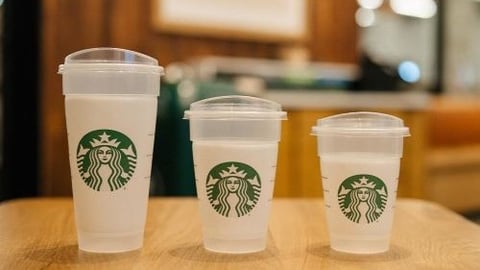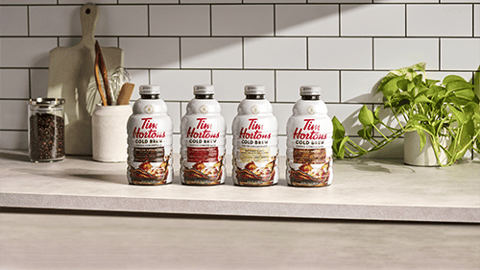EXCLUSIVE: A Coffee Entrepreneur Talks Beans and Beats
Imagine, for a moment, going on a grocery run and following the sounds of live hip-hop music and the aroma of freshly brewed Ethiopian coffee to find a simultaneous in-store performance and sampling event.
Michael Loyd hasn’t just thought of it, he’s organizing such experiences as part of his role and passion at Dope Coffee. The Decatur, Ga.-based entrepreneur created Dope Coffee with his wife Michelle “Chel” Loyd, a registered dietitian and professional chef. Together and with their tight-knit team that includes COO Stace Loyd, they are driven by a love for coffee, music and quality ingredients.
[Read more: “Fair Trade USA Updates Coffee Program”]
“For me, hip-hop is a culture that is the most diverse and representative of America as an audience that you will ever find,” Loyd declared in a recent interview with Progressive Grocer. “There is so much commonality in that audience and you can take that and combine it with coffee, which everyone loves.”
The U.S. Marine veteran got into the coffee game a few years ago. He and Michelle started a coffee shop, Solar Café, in a rural area near Camp Lejeune in North Carolina and ran it successfully until Hurricane Florence “wiped out” the site five years ago, he said.
“We made the move to Atlanta, where I got reconnected with my passion for hip-hop,” Loyd recalled. “2018 came around and I said, ‘It’s time to quit coffee or take it in a direction where we want to take it’.”
Take it, they did. The Black-owned Dope Coffee was launched soon after, taking its name from a term with different meanings, from denoting the stimulant of caffeine to connoting something cool. “I think of ‘dope’ as a great way to express something you feel good about," Loyd explained.
The coffee itself is created in a mindful way, as Michelle Loyd wanted to offer a better-for-you alternative to cream- and sugar-laden coffee drinks on the market. “We use air roasting, with beans that are Grades 1 to 3. Michelle started experimenting with different origins and roasting styles, and she can dial it in perfectly,” he said.
The couple’s son has followed in his parents’ footsteps. “He calls himself the CRO – the chief roasting officer,” shared Loyd with a laugh.
Dope Coffee beans are available in several varieties, such as Ethiopian Dripp, Wize Arise Blend, Dope Sunrise Blend, Organic Guatemalan and Burundi Honey, among others, sold in 12-oz. bags, smaller 2-oz. packets and a selection of pods. The makers also offer ready-to-drink coffees and teas. The packaging for all of the items reflects the founders’ vision of the brand, inspired by hip-hop album covers and designed to elevate Black culture.
[Read more: "Target Elevates Breakfast With Ghetto Gastro"]
Loyd and his team, including a Georgia-based sales and marketing agency, are working to expand distribution of the product line beyond direct e-commerce and into physical stores. Currently, Dope Coffee is sold at more than 30 independent stores in Georgia, North Carolina and the San Francisco area of California. “We are currently talking to four major retailers,” added Loyd, noting that the products are at different stages in the category review process.
As he works with more grocers, he is also getting creative with ways to fuse hip-hop and coffee. In addition to working with grocers to invite performers to their stores while promoting and sampling the products, Dope Coffee is planning a “Coffee & Sound” tour bus that can stop at different locations. “I think this is the future,” he said of thinking outside the box to entice and engage shoppers who are interested in many aspects of food and culture.
The creators are continuing to innovate in other ways. The company is rolling out four new products for the holiday season, launching in mid-October.
Loyd is amped up for the future of the brand and, for that matter, the food retailing business. “I want to stay in CPG and food and beverage. I love this industry and it’s ripe for disruption. People use that word all the time, but I think it’s right, in terms of ingredients, brands and how brands are distributed. It’s a good confluence,” he remarked.









